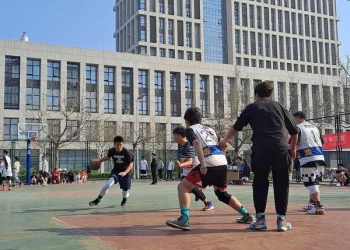What conditions should Japan’s postgraduate study abroad meet?
What are the specific application procedures?
These are not understood by many freshmen studying abroad.
So here to look at the Japanese graduate study abroad application requirements and application steps.
1. Applicants are required to have a bachelor’s degree and a bachelor’s degree or have no degree (such as only a diploma without a degree or a junior college graduate) but are deemed to have the corresponding research quality after prior examination by the university;
2. Language requirements for social science majors such as literature, History, Philosophy, Law, Politics and Economics Japanese N1, English (TOEFL based) is also an important index (in addition to Japanese direction), science, engineering, medical and other natural science majors English (TOEFL based) is the most important, Japanese N2 is the best;
3. Academic literacy requires the ability to independently write research proposals, and possess at least academic common sense, knowledge and technical reserves in the subject area of the planned research.
The average undergraduate score is generally not less than 80 points, especially the scores of major subjects.
2. How to arrange the application steps for postgraduate study in Japan?
1. First of all, you need to go to the official website of the volunteer school to understand the following information about your target major: the specific requirements of the respective college test, the deadline for registration, whether the school is recruiting students, and whether the graduate students need to take an exam or interview.
2. Looking for professors Students need to know in detail about the professors in their desired schools and choose the professors who are in line with their research direction. After making the decision, they can contact the professors.
3. When contacting professors, professors should first write down their personal information in detail, and the most important thing is to write down clearly the topic they want to study. If the research topic is valuable, innovative or difficult, it will arouse the interest of professors.
PS: Professors will want to know more about your research project outline or proposal, including the research background, objectives, content and methods.
So the azure teacher suggested to be prepared in advance, when asked for details to be prepared!
4. If the professor is satisfied with you, he will usually give you a temporary verbal promise, that is, Neino.
However, even if the verbal commitment, azure teacher reminded also must not be taken lightly.
When you receive Neino, you need to prepare your “offer.”
When you get the offer form from the university, please fill out the transcript, graduation certificate, resume, deposit certificate and other information and mail it to your professor.
(There are also some schools need to submit on the spot, in the first step in advance to see the requirements of their chosen school oh) 5, in the process of staying until the book review qualified, you need to start to stay in the qualification.
Then apply for a visa to study in Japan, visa down to buy a plane ticket to Japan, open our road to graduate school in Japan!
1. Easy Review Difficulty After 12 years of domestic education and training, the learning ability of ordinary students is higher than that of students of the same age in other countries.
Students who have passed the exam will not deal with the problem of studying abroad.
Moreover, most of the three years of high school knowledge in China overlaps with the examination scope of studying abroad, and the difficulty coefficient of review is small.
The Japanese government allows international students to work no more than 28 hours per week.
According to the 2019 statistics on hourly wage in Japanese cities, the average hourly wage for a job in Tokyo, Kyoto and Osaka is 1,013 yen (about 67 yuan), 909 yen (about 60 yuan) and 964 yen (about 63 yuan), respectively.
Therefore, international students can solve their living expenses and save some of the burden for their families by working in Japan.
In China, college students have few working channels, low salary and no legal guarantee.
Europe and the United States do not easily allow international students to work.
3. Scholarships and Tuition waivers In Japan, each school has more than 2,500 scholarship programs, and the way to get scholarships is relatively simple.
While Japanese students can get tuition waivers, they are required to return their jobs after graduation, while Chinese students are not.
In contrast, European and American scholarships are hard to award to Chinese students, and winning scholarships is extremely difficult.
4. Tuition Advantage From the perspective of tuition, the average cost of studying abroad in Europe and the United States is between 100,000 and 300,000 yuan, while in Japan, except for medical majors, the cost of national and private universities will not exceed 100,000 yuan/year, and there is no special charging policy for Chinese students.
5, graduation difficulty is small compared with Europe and the United States, adhere to the loose in tight out of the principle of graduation, Japanese undergraduate graduates will not be subject to the double standards of the school review.
As long as students complete the school’s established educational tasks, it is not difficult to graduate.




















